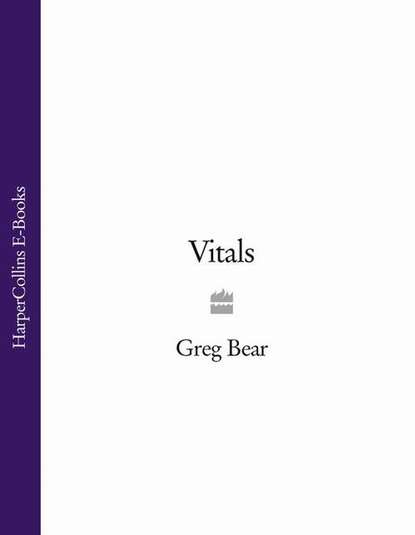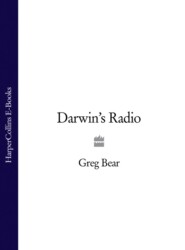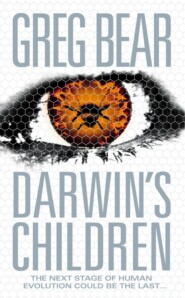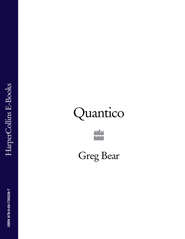По всем вопросам обращайтесь на: info@litportal.ru
(©) 2003-2024.
✖
Vitals
Автор
Год написания книги
2018
Настройки чтения
Размер шрифта
Высота строк
Поля
Montoya puffed into his palm and sniffed the result. ‘Do I offend?’ he asked, smiling.
I smiled back. ‘Not at all. But some of them stick to each other and cement themselves to your teeth. After a while, they build up layers of bacterial architecture on your enamel. Dentists call it plaque. It’s a community of cooperating bacteria of many different kinds – a biofilm. The Sonodyne vibrates the biofilm until it falls apart – breaks the cement the bacteria use to fasten to the teeth. In essence, you’re demolishing their houses and shaking them up so bad they can’t even talk.’
‘Look, Ma, no cavities,’ Montoya said.
‘Other bacterial communities colonize your skin, your mucus membranes, and, of course, your gut, where they perform essential digestive services.’ I could sense myself overstepping the bounds of what my angel might want to hear. ‘There are so many bacteria in your intestines that even people who are starving excrete feces – made up mostly of bacteria.’
‘Wow,’ Montoya said. ‘Gossip in the big germ city. But if we’re so important to them, why try to bring us down?’
‘A herd of antelopes sheds the old and tired to make way for the young and fit. Lions prune the herd like a rosebush. The lions may act like killers, but actually they’re partners with a big investment in the health of the herd. Bacteria are more than just important partners – they’re the most successful predators of all. We’re their herd. Aging and death is one way to keep the herd fresh and healthy.’
‘So, how do bacteria cause aging?’ Montoya asked, leaning forward and moving his tongue over his lips.
‘Bacteria in our gut produce quantities of a tiny protein I call hades.’ Now I was really sweating. ‘Our tissues open special receptors, coded for in genes I believe once came from mitochondrial chromosomes. Hades creeps in. It winds up a molecular clock days or weeks after we’re born. With each tick of the clock, the bacteria increase the amount of hades they import into our tissues. Hades alters the way mitochondria work – jams them up, makes them convert ATP with less efficiency. We accumulate the resulting oxidants and free radicals, byproducts of respiration that damage our DNA. Our cells can’t repair the damage. We start to lose our youthful resilience. We grow old.’
Montoya held up his hand and rubbed a few small, liver-colored patches on the back. ‘Age spots,’ he said. ‘And I’m not that old. So what’s in it for the bacteria?’
‘There’s a pot of gold waiting for them. Eventually, we get so weak, so full of genetic errors, that disease or cancer finishes us off. Then, the bacteria have an orgy. They feast like retainers eating a dead king.’
‘Jesus,’ Montoya said, and clenched his hand into a fist.
‘That’s the work I’ll be publishing in a few months, communication between E. coli and mitochondria in human intestinal cells. I’m leaving out the news about hades for now.’
‘We could just kill all our bacteria. Wipe them out with radiation or something. Live in a sterile environment.’
‘They tried that in the nineteen twenties, and it didn’t work,’ I said. ‘The fact is, we’re designed to die. The molecular clock also acts like a deadman switch. Without bacteria, we go on aging anyway – only faster. A certain amount of hades may serve double duty – if we’re active and productive, it may even reset the timer on the clock. It may also help repair genetic damage. Without hades, old viruses in our DNA start popping up and antagonizing our immune system. We become more prone to cancer or autoimmune disease.’
‘Like a time bomb,’ Montoya said. ‘Awful. I assume you’ve found a way to defuse it?’
‘I’m close. The solution isn’t simple, but it involves training bacteria to pump in just the right amount of hades, at the right times – not too much, and not too little. And we have to jam the tattletale signals from our mitochondria. I’m pretty sure I can fool our bacterial partners into turning back our clocks. We live longer – maybe a lot longer.’
Montoya flexed his fingers and compressed his lips with something like satisfaction. ‘Why go against the wisdom of nature?’ he asked softly, fixing me with a limpid stare. ‘Why live longer than the “judges” want us to?’
‘We’re big kids now. We made fire. We made antibiotics. Did the bacteria give us permission to go to the moon? We’re ready to take charge and be responsible for our own destiny. Screw the old ways.’
Montoya grinned. ‘I’ve never tried to think like a germ.’
‘I do it all the time,’ I said. ‘It’s enlightening.’
Montoya made a face. ‘A whole new view of human existence,’ he said. ‘Makes me dizzy.’
‘Not entirely new.’ I reached into my satchel and pulled out a list of the researchers whose work had helped me. ‘There are going to be a lot of Nobel prizes for these people in the next decade.’ I was taking another chance, but I would not work for a man who was always sniffing for someone more famous. Montoya had to believe that I really had the goods.
‘How about your Nobel?’ he asked.
I shrugged. ‘Not important,’ I said. ‘I’m in it for the long haul.’ Sometimes I whispered that phrase to myself to get to sleep at night, like counting sheep. The Long Haul. The Really Long Haul.
A butler – Swedish blond and about sixty years old – carried a tray of glasses and a bottle of 1863 Malmsey Madeira. He poured, and Montoya handed me a crystal glass.
‘Nobel prizes won’t be half of it,’ Montoya murmured. He narrowed his eyes as if about to fall asleep and leaned his head back. Here it was. My angel was about to pull out his flaming sword. ‘You have a compelling vision. How can I help you to get on with your work?’
I took out the pictures shot by the Alvin crew the month before. Montoya thumbed through and reversed them to look at my notes.
‘There are some deep places I’d like to visit,’ I said, ‘and some problems I’d like to solve. I’d like to do it in secret…Until I find out whether I’m a major-league idiot, or whether I’m really on the edge of a revolution.’
‘What will I get out of it?’
‘Nothing all to yourself,’ I said. ‘My work is for everybody. No patents, no marketing exclusives. I’m pretty hard-headed that way. But maybe – just maybe – you’ll get a crack at living a few hundred years longer. Or a thousand. Or ten thousand.’
Montoya lifted his finger and seemed to wag it in time to unheard music. His eyes got dreamy. ‘Eternity means for ever without time. Like standing still for ever. Did you know that?’
I shook my head. Philosophy has always been my weak point. Why argue about printed words when there are thousands of proteins and enzymes, the verbs and nouns of living biology, to memorize and understand?
‘You know what I want to do, Hal?’ Montoya asked. He stared out over the Plexiglas shield at the end of the porch and lifted his golden Madeira to the breaking waves. ‘I want to build a huge starship. I want to travel to other star systems, stand on new worlds, and party with all my friends on my millionth birthday. I want to dip my feet in the waters of unknown shores and help lovely, enthusiastic women become mothers.’
Montoya finished his glass in one big gulp. ‘I have all the money I need, Hal. I just don’t have enough time.’
By ten the next morning, I had a pledge from Owen Montoya for three million dollars.
CHAPTER EIGHT (#ulink_9b4503d8-1dfc-523b-9f7d-9a1ae58c5aa0)
The Mary’s Triumph had managed to cruise between three massive chimneys. Outside, hydrogen sulfide had leaped from a stinking trace to levels toxic to humans. Where steam-boiler temperatures did not scald, life flourished. Tube worms gathered in weird bouquets between the chimneys. White crabs crawled through like ants in grass. No alien city would ever look so strange or so weirdly beautiful.
For a second, I spotted something gray and serpentine just beyond a nearly solid wall of tube worms. I tried to call it to Dave’s attention, but by the time he turned to look, it had faded like smoke. A current? A ribbon of bacterial floc scalded loose by a geyser?
‘We have about two hours,’ Dave reminded me. ‘Those chimneys have to be eighty feet high.’
‘That could happen in a few months down here.’
‘It’s still pretty damned wonderful. One of the biggest fields we’ve found.’ Dave shook his head. ‘But you’re not interested in tube worms.’
‘Not right now.’
Tube worms are born empty, then suck bacteria into their hollow guts and rely on them to process sulfides and provide all of their nourishment. They live about two and a half centuries, three at the most. Impressive, but they still take their marching orders from germs.
I wanted evidence from earlier times, when the host was still putting up a good fight and the bacteria were still flying their true colors.
‘Under the plume,’ I reminded Dave. ‘Let’s go east about a hundred yards. The walls seem to open up, and there are already fewer vents.’
‘So there are,’ Dave said, comparing the image from our forward-looking sonar with a terrain map made several months ago – a map, incidentally, that did not show Field 37.
He rechecked our position, triangulating between the pulses from the mother ship and the transponders on the seafloor, then pushed the stick forward. Two, three, four knots; a gentle glide through the forest, over tube worms and around spewing, roaring geysers.
We passed near enough to look up at a flange thrusting almost six feet from the side of a tall chimney. The bottom of the flange was painted with rippling, silvery pools. Superheated mineral-rich water, refusing to mix with the cooler local fluid, gathered under the flange’s rough surface and reflected our lights.
‘I get nervous around these puppies,’ Dave said. ‘Had one almost topple over on me when I was working for NOAA. Just clipped it with a manipulator arm, then, wham.’
‘That’s not common, is it?’ I asked.









